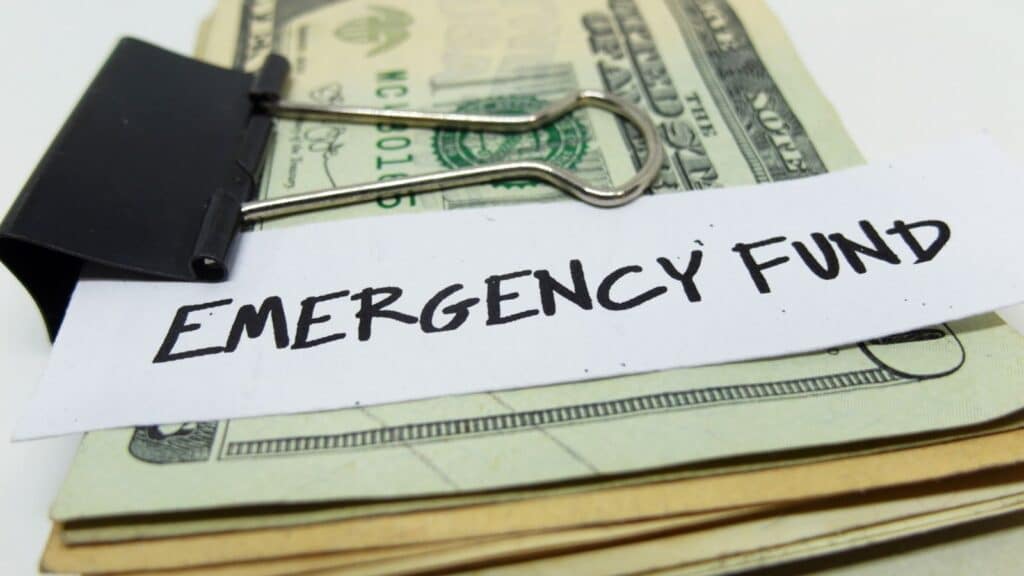It’s natural to make some financial mistakes as we journey through this life. As we learn from these mistakes and improve our financial situation, we can share this wisdom with the younger generation. We look at 19 financial mistakes to warn your kids against making too as they grow up and point them in the right direction to a wealthy and prosperous adult lifestyle.
Buying a New Car

If you can’t pay for a new car upfront, it might mean you can’t afford it. Simply making monthly payments doesn’t necessarily mean it’s within your means. Financing a car means paying interest on something that loses value, which widens the gap between what you owe and what it’s worth. Plus, frequently changing and trading vehicles often leads to financial losses. Reuters reports showing a significant increase in U.S. new vehicle sales, reaching approximately 15.5 million units, with nearly 17% comprising electrified vehicles, indicating shifting consumer preferences.
Excessive Home Improvements

When thinking about buying a home, bigger isn’t always better. Choosing a substantial 6,000-square-foot house might mean paying more for taxes, upkeep, and utilities, especially if you don’t have a big family. Considering all the ongoing expenses, not just your mortgage, is essential. Is it really worth making such a big financial commitment for the long term? Think about what matters most to you in a home search. If having a big yard is a priority, that’s fine, but be ready for extra costs like hiring help, buying equipment, following HOA rules, and dealing with unexpected problems. According to census reports, there were 664,000 new houses sold, with 453,000 available for sale, indicating a thriving housing market with a median sales price of $413,200.
Excessive and Frivolous Spending

Large fortunes often slip away slowly, one dollar at a time. Indulging in luxuries like fancy coffee, eating out, or renting movies may not seem like a big deal individually, but these small expenses add up over time. Just spending $30 a week on dining out adds up to $1,560 a year. That money could go a long way in easing financial stress by paying extra on credit cards, car loans, or making extra mortgage payments. For people facing financial difficulties, avoiding these small expenses is crucial, especially when facing foreclosure or bankruptcy, where every dollar counts even more.
Paying the Minimums on Your Credit Cards

Paying only the minimum on your credit cards can prolong your debt repayment significantly. While it may seem like a convenient short-term solution, the long-term consequences can be financially burdensome. By just meeting the minimum payment requirements, you’re likely to accrue substantial interest charges over time, prolonging the duration of your debt repayment. It’s essential to strive for more than the minimum payment to expedite debt clearance and alleviate financial stress in the long run.
Living on Borrowed Money

The practice of using credit cards for essential purchases has become increasingly prevalent. Despite the growing number of consumers willing to incur double-digit interest rates on necessities like gasoline and groceries, it could be more prudent financial behavior. The accumulation of credit card interest significantly inflates the cost of these items, potentially leading to spending beyond one’s means. According to Lending Tree, data from the Federal Reserve Bank of New York reveals that Americans’ total credit card debt reached $1.129 trillion in the fourth quarter of 2023, marking a notable increase from the previous quarter’s record of $1.079 trillion. This surge represents the highest balance recorded since the New York Fed began tracking such data in 1999.
Spending More Than You Earn

Indicators of overspending beyond your means include consistently living paycheck to paycheck, accumulating credit card debt that remains unpaid each month, and having minimal to no savings. If this resonates with your financial situation, there’s still an opportunity to regain control. Crafting a budget is pivotal in balancing and tracking your expenditures. Using online budgeting platforms can offer comprehensive insights into your financial outflows. Armed with a clear understanding of your spending patterns, you can pinpoint areas where adjustments can be made to curtail expenses.
No Retirement Investing

Failing to put your money to work for you in various income-generating avenues could result in a perpetual cycle of work without reprieve. Consistently allocating funds to designated retirement accounts is paramount for securing a financially stable retirement. Capitalize on tax-deferred retirement accounts and employer-sponsored plans to maximize your savings potential. It’s crucial to assess the timeframe available for your investments to grow and determine your risk tolerance. Seeking guidance from a knowledgeable financial advisor who can align your investment strategy with your objectives is something you might want to look at.
Not Monitoring Your Credit Score

Maintaining a low credit score can hinder your ability to secure credit in the future. Your credit card and loan choices will be restricted, and you may face higher interest rates. Additionally, it could complicate the process of renting an apartment. So, it’s essential to take proactive measures to cultivate a robust credit score while steering clear of actions that could potentially diminish it. You can enhance your credit score over time by responsibly managing your finances and adhering to sound credit practices.
No Debt Repayment Plan

A repayment plan helps you get out of debt and improve your finances. Without a plan, you might get frustrated and want to give up. Determine if you can cut expenses, make more money, or do both to afford more significant monthly payments. Start by paying off high-interest debts first to save on interest and have more money for other financial goals. A structured plan can gradually reduce debt and improve economic stability.
Dipping Into Home Equity

Opting for refinancing and extracting cash from your home involves relinquishing a portion of ownership to another entity. While refinancing can be advantageous if it results in a lower interest rate or facilitates the payoff of higher-interest debt, another option is a home equity line of credit (HELOC). With a HELOC, you can leverage your home’s equity like a credit card. However, this approach may lead to unnecessary interest payments merely for the convenience of accessing your home equity line of credit.
Paying Off Debt With Savings

While swapping high-interest debt for lower-yield retirement investments might seem logical, the reality is more complex. Taking money out of your retirement savings can be challenging because you lose out on the benefits of interest growing over time, and you might have to pay big penalties. Even if borrowing from your retirement seems like a good idea at first, putting that money back can be tricky, even for people who are good at saving. Once you’ve paid off your debt, it’s easy to start spending like you used to, which could lead to getting back into debt. So when you use your savings to pay off debt, treating it like you still owe that money to your retirement savings is essential.
Not Taking Advantage of Employment Opportunities and Funds

Maximizing your retirement savings can be achieved by leveraging employer-sponsored programs. Whether you can only afford a small contribution initially, participating in such retirement plans and exploring stock options can yield significant benefits over time. These employment-based opportunities set the groundwork for a more secure financial future. Plus, even modest contributions to these programs can accumulate and compound, bolstering your retirement nest egg in the long run.
Paycheck to Paycheck

As of June 2021, the personal savings rate among U.S. households stood at 9.4%. However, a mere two years later, in October 2023, this rate plummeted to a concerning 3.8%. This decline reflects a troubling trend where many households increasingly live from one paycheck to the next, with minimal savings to fall back on. Such overspending habits leave individuals vulnerable, particularly during an economic downturn, where even a single missed paycheck could spell financial disaster. It’s imperative to avoid finding oneself in such a precarious position when facing economic uncertainties.
No Asset Protection

Regrettably, our time on this earth is limited. Life insurance is a safety net, covering funeral costs and providing financial support to loved ones once your income is no longer available. Simultaneously, drafting a will ensures that your assets are distributed according to your preferences and wishes. By securing life insurance and a will, you can offer peace of mind to yourself and your family, knowing that your affairs are in order and your loved ones are protected.
Not Investing in Yourself

Prioritizing self-investment lays a solid foundation for your future prosperity. Devoting resources to furthering your education, advancing your career, and maintaining your health can yield substantial dividends. Investing in yourself is a sound strategy, whether pursuing an advanced degree or acquiring new skills through courses to enhance your earning capacity. Additionally, prioritizing your health and wellness today can mitigate the risk of encountering costly health complications down the line. By investing in yourself now, you’re positioning yourself for long-term success and financial well-being.
No Emergency Fund

Maintaining an emergency fund is essential for achieving financial security. Ideally, it should beenough to cover 3-6 months’ worth of living expenses to cushion against job loss or unforeseen emergencies. However, even a modest amount, such as a few hundred dollars, can cover unexpected costs without debt. Begin by setting aside a small portion of your monthly income into a dedicated savings account, and witness your emergency fund steadily accumulate over time.
Taking Loans, You Cannot Repay

Another common financial pitfall involves taking out loans beyond your means to repay. According to the Education Data Initiative, “42.8 million borrowers have federal student loan debt,” with “the average federal student loan debt balance at $37,787,” potentially reaching as high as “$40,780” when including private loan debt. While student loans can be viewed as an investment in one’s future, it’s crucial to conduct thorough research, pursue scholarships and financial aid, and carefully assess costs when deciding which college to attend.
Never-Ending Payments

Consider whether the items you consistently pay for each month, year in and year out, are truly essential. Subscriptions to services such as cable television, music streaming platforms, or exclusive gym memberships may entail perpetual payments without yielding any tangible ownership. During periods of financial constraint or when aiming to bolster savings, embracing a more streamlined lifestyle can significantly bolster your financial reserves and provide a protective buffer against potential economic adversity.
No Plan

Recognizing that your financial well-being hinges on your current actions is crucial. While many devote significant time to watching TV or browsing social media, more than just two hours per week to financial matters often seems unfeasible. However, understanding your financial trajectory is paramount. Prioritize dedicating time to planning and managing your finances to ensure you’re heading in the right direction. Investing time in financial planning today can pave the way for a more secure and prosperous future.
19 Grim Realities of Dating After 50 That Are Often Overlooked

19 Grim Realities of Dating After 50 That Are Often Overlooked
26 Things That Will Be Extinct Because Millennials Refuse to Buy Them

26 Things That Will Be Extinct Because Millennials Refuse to Buy Them
24 Outdated Slang Terms You Absolutely Shouldn’t Be Using Anymore

24 Outdated Slang Terms You Absolutely Shouldn’t Be Using Anymore
25 Hardest Parts About Getting Older That No One Ever Talks About

25 Hardest Parts About Getting Older That No One Ever Talks About






